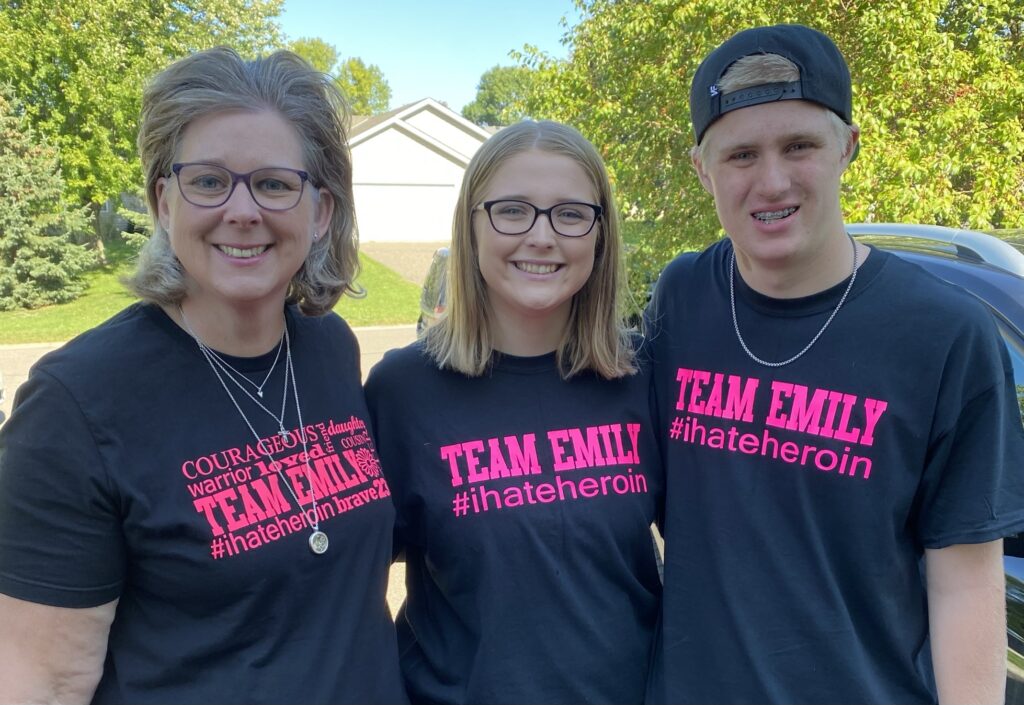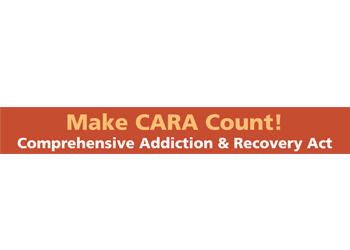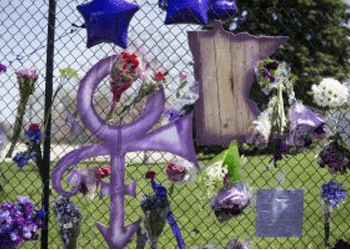“We were surrounded by people who supported us with so much love.”
The Walk for Recovery is an essential community event to model hope and break the stigma of addiction. Thousands of people come together to enjoy a day of music, food, dance, and fun activities for all ages. For some, it is also a day to gather with loved ones to remember and honor those they’ve lost to substance use disorder. Minnesota Recovery Connection is privileged to spotlight Krista Lunzer, who started Team Emily to honor of her daughter. Team Emily has consistently been a top fundraising team for the Walk for Recovery. We are grateful to Krista for her support of MRC’s mission and for sharing her journey with us.
MRC: How did you first hear about Minnesota Recovery Connection’s Walk for Recovery?
Krista: My daughter passed away from an overdose in June of 2018 and I first heard about the Walk for Recovery through a Facebook post in July of that same year. The Walk for Recovery information was being promoted on Facebook by another recovery page that I follow and it instantly struck a chord with me and I knew it was something I wanted to be involved in.
MRC: How many years have you participated in the Walk?
Krista: The first year I participated in the walk was in 2018, previously to that I had not heard about the Walk for Recovery.
MRC: What motivates you to come back every year?
Krista: I have been sober since I was 18 years old. I have had a lot of exposure to substance use disorder and recovery. I was involved in a twelve-step program for the first 10 years of my recovery. When I had Emily, my daughter, I wasn’t as active in organized recovery but was active in the principles I had learned, and was surrounded by other people in recovery. When Emily started struggling with substance use disorder I became aware again of resources, and that different people need different resources. When she passed from an overdose in 2018, we walked in her honor that first year. I had a lot of people who came up to me who knew her but I didn’t know them, because her recovery had to be her own. We were surrounded by people who supported us with so much love, and there was such a sense of belonging. I knew that I wanted to do what I could to be more a part of the community. I knew that it was not one and done, and that we had to keep it going. We wanted to move forward, and people joined our team. I was so moved during that first year of the walk by the women who supported Emily, that I still keep in touch with them today and they are very near to my heart.

MRC: What is your favorite part about putting a team together?
Krista: Feeling the love and support from so many people. For my own recovery, 36 years now, it isn’t so much a daily thing. It is still a part of me absolutely every day, but I do not take the time to appreciate my sobriety as I did in the very beginning. When I start focusing on the walk and the mission of reducing stigma and supporting recovery throughout the community, it allows me to focus on my appreciation for my recovery. Every year when I feel the support of friends and family and how recovery is a good thing in my life, a positive without guilt, shame, dread, and the support of alcohol. It is all positive there is nothing negative about being a part of this event.
MRC: Do you have any advice or tips for someone who is starting their first fundraising team?
Krista: Do not be ashamed of your story, sharing your story inspires other people and through that, there is a positive impact. I use Facebook and a blog to share our story, we proudly wear our ‘I heart Emily, I hate heroin t-shirts.’ Do not be ashamed of where you’ve been. I think you’ll be surprised by how many people can connect or identify with the impact of substance use disorder. We want to stop the element of shame or only talking about it behind closed doors. It is not a character defect, it is a disease. There should be no shame in us saying our Emily died from addiction. There should not be any shame in saying I am an alcoholic. In bright pink we say we are proud, we are not afraid of the stigma, and are here to send a message.
MRC: What would you say to someone attending the walk for the first time?
Krista: Do not be afraid to ask people their stories or for a hug. Everybody that is there, has a reason for being involved. Either because of their own personal experience or the experience of a loved one and what makes the walk great is sharing those stories and hearing the support. It’s a really fun day. I have a lot of family who walks with me who are not in recovery. They look forward to the walk and are not directly impacted by addiction, but I feel support from them. And it is also an emotional day, especially for people like me who lost someone. We carry a picture and statement of what she is or was to me. A past counselor hugs me every year. My Emily touched a lot of people and I am still so grateful for all the love that continues to come my way from the people she touched.
I can’t speak highly enough of the event. Part of it is because Emily was strongly woven in that community. She struggled for 7 years and she never gave up hope that there was going to be recovery for her. She believed in the promises of recovery even though she couldn’t quite find it. That community of support is important. When Emily would be fighting for recovery she believed in it very much. Whenever she was trying to go into recovery, she was surrounded by a community of women who carried her when she couldn’t carry herself. It’s important for me to feel a part of community on that day. The walk’s mission is so needed – peer to peer support is such an element of recovery. Reducing the stigma about substance use disorder is imperative. What started as an event we stumbled upon that “spoke to me,” has turned into something I look forward to every year and continue to be a part of.
If you are interested in starting a walk team please visit the 2022 Walk for Recovery website and register your team today!




